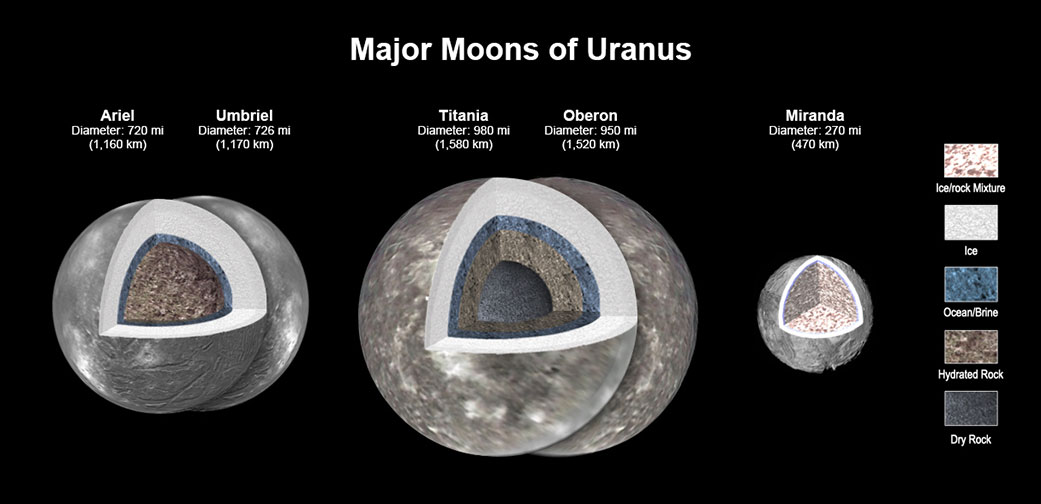We may be one step closer to answer one of the many questions surrounding Uranus and its 27 moons. According to a new study, data captured by NASA’s Voyager spacecraft has revealed that four of Uranus’ five major moons could be hiding oceans of liquid water within them.
NASA notes that previously it was believed that Uranus’ five largest moons, Ariel, Umbriel, Titania, Oberon, and Miranda were too small to reliably retain enough heat to keep an internal ocean from freezing.
However, the new study, which scientists published in the Journal of Geophysical Research could help inform scientists on future studies of Uranus and its major moons. That’s because this new study suggests that NASA’s Voyager 2 flyby of Uranus in the 1980s revealed more than we previously thought.
Ranging between 720 miles to 980 miles across (1,160 to 1,580 kilometers), Uranus’ moons are small. So small, that the largest of those major moons, Titania, is only “likely” to retain internal heat, at least based on old observations. However, scientists revisiting those old observations say new modeling could suggest otherwise.

For starters, the scientists took the old data from Voyager 2 and then combined it with models including insights from NASA’s Galileo, Cassini, awn, and New Horizons spacecraft. All these spacecraft are known for discovering ocean worlds.
They then looked at data from the geology of Saturn’s moon Enceladus, Pluto and its moon Charon, as well as Ceres — icy bodies around the same size as Uranus’ moons.
By combining all of this information together, the researchers discovered that Uranus’ moons are likely insulated enough to retain the level of internal heat needed to keep an ocean beneath their surfaces from freezing. Observations of Ariel also suggest it recently released some kind of liquid onto its surface.
They also found what could be potential heat sources in the icy surfaces of Uranus’ five largest moons, which could provide further evidence of internal oceans on those Uranian satellites. Of course, future missions to Uranus could help us dive deeper, which is why many are pushing the U.S. and other countries to probe the planet.








